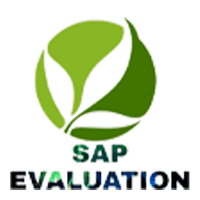Navigating the world of SAP evaluations can be overwhelming, especially for truck drivers, DOT-regulated employees, and anyone grappling with substance abuse issues. This post aims to demystify SAP evaluations, offering clear insights and answering common questions about the process.
How Much Does An SAP Evaluation Cost?
The cost of an SAP evaluation can vary widely depending on the provider and location. Generally, you can expect to pay between $300 and $500 for the initial evaluation. Some providers might charge additional fees for follow-up sessions or paperwork. It’s essential to check with the specific SAP to understand the full extent of the costs involved. Remember, investing in a comprehensive SAP evaluation can be a critical step toward regaining your professional life and ensuring safety in the workplace.
What Happens At An SAP Evaluation?
An SAP evaluation typically involves several steps to assess your substance use and determine the appropriate course of action. First, you will undergo an initial interview where the SAP will ask detailed questions about your substance use history, work environment, and any previous treatment or counseling you have received. This interview helps the SAP understand your unique situation. Next, you may be required to complete standardized questionnaires or assessments that provide additional insights into your substance use patterns and mental health. Finally, the SAP will develop a personalized plan, which may include treatment recommendations, education programs, or follow-up evaluations.
How Long Does It Take To Complete The SAP Program?
The duration of the SAP program varies based on individual circumstances and compliance with the recommended treatment plan. On average, participants can expect to spend anywhere from a few weeks to several months completing the program. The initial evaluation typically takes one to two hours, but the overall program duration depends on the severity of the substance use issue, the type of treatment required, and the participant’s commitment to the process. Regular follow-up appointments and progress reviews ensure that participants are on track and receiving the necessary support.
I Am Not Comfortable Sharing Personal Information With A Stranger, Do I Have To?
It’s perfectly normal to feel apprehensive about sharing personal information with someone you don’t know. However, SAP evaluations are conducted by trained professionals who are bound by confidentiality agreements and ethical guidelines. Their primary goal is to help you overcome substance use issues and return to work safely. Being open and honest during the evaluation process is crucial for receiving the most accurate assessment and effective treatment plan. Remember, the SAP is there to support you, not judge you.
Is The SAP Program Covered By Insurance?
Insurance coverage for SAP evaluations and related treatments varies based on your insurance plan and provider. Some insurance plans may cover part or all of the costs associated with the SAP program, including the initial evaluation, follow-up sessions, and recommended treatments. It’s important to contact your insurance company to determine what is covered under your specific plan. If your insurance does not cover SAP services, many providers offer payment plans or sliding scale fees to accommodate different financial situations.
What Is The Difference Between An Evaluation And Treatment?
An SAP evaluation is an initial assessment conducted to determine the extent of an individual’s substance use issues and to develop a personalized treatment plan. It involves interviews, questionnaires, and assessments to gather information about the individual’s substance use history and mental health. Treatment, on the other hand, refers to the actual interventions and programs recommended by the SAP to address the substance use issues. Treatment may include counseling, therapy, education programs, or inpatient rehabilitation, depending on the severity of the substance use and the individual’s specific needs.
I Am Not An Alcoholic Or Drug Addict, Do I Still Need To Complete The SAP Program?
Even if you do not identify as an alcoholic or drug addict, you may still be required to complete the SAP program if you have tested positive for substances in a DOT-regulated job. The purpose of the SAP program is to ensure the safety of all employees and the public by addressing any substance use issues that could impact job performance. Completing the SAP program demonstrates your commitment to maintaining a safe and drug-free workplace and can help you return to work more quickly.
Who Is Considered To Be A Qualified Substance Abuse Professional (SAP)?
A qualified SAP is a licensed or certified professional with specialized training and experience in substance use disorders and evaluations. They may be counselors, social workers, psychologists, or physicians who have completed specific training and certification requirements set by the Department of Transportation (DOT). To maintain their credentials, SAPs must participate in ongoing education and training to stay current with best practices and regulations in the field. When selecting an SAP, it’s important to verify their qualifications and ensure they meet the required standards.
Conclusion
SAP evaluations are a critical component in maintaining safety and compliance in DOT-regulated industries. By understanding the process and being proactive about addressing substance use issues, you can take important steps toward regaining your professional life and ensuring the well-being of yourself and others. Whether you’re a truck driver, a DOT-regulated employee, or someone struggling with substance use, this guide provides valuable insights to help you navigate the SAP program with confidence. For more information and support, consider reaching out to a qualified SAP or seeking additional resources to aid in your recovery and professional journey.


